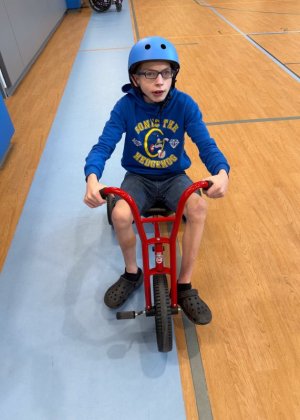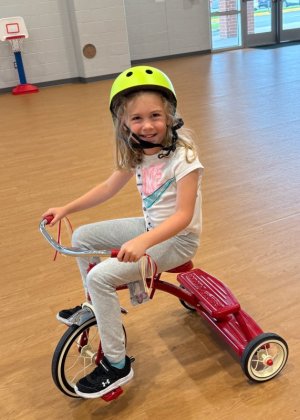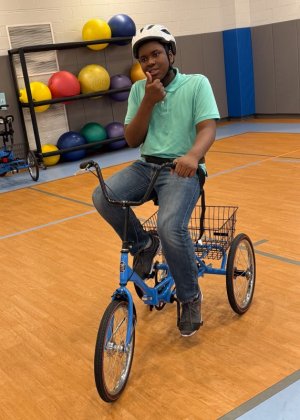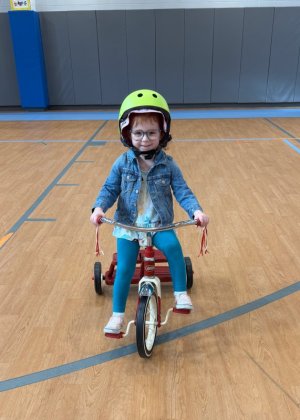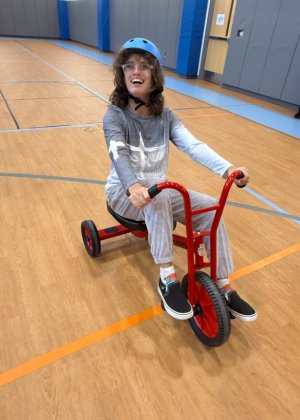Inclusive tricycle program benefits Cape students
The Cape Henlopen School District is celebrating the success of its innovative tricycle unit, launched at the Sussex Consortium last spring.
Funded through a grant, the program provided adapted physical education opportunities designed to promote physical health, motor skill development and social-emotional growth for students of all abilities. It brought students together through engaging activities such as obstacle courses, group rides and a culminating Trike Parade and Skills Day celebration.
Beyond the fun, the program fostered whole-child growth by strengthening physical health, building fine motor skills and supporting emotional well-being. With a strong emphasis on equity and access, the initiative intentionally reached diverse student populations, ensuring that movement-based learning opportunities were available to every child who could benefit from them.
In all, 137 students, ranging in age from 4 to 22, participated in weekly structured tricycle lessons led by a certified physical education teacher. The program served pre-K students, and middle and high school students, with a particular focus on those receiving special education services. Lessons were designed to be inclusive, pairing students with peers in a supportive and engaging environment, and included play-based activities. Instruction was adapted with visual schedules, modeling, 1:1 support and positive reinforcement, particularly for students with autism or sensory needs.
“The growth we witnessed was incredible. Students who started the unit unable to pedal were navigating obstacle courses and riding with confidence by the end,” said Amanda Eggers, a Sussex Consortium physical education teacher. “For many, this wasn’t just about learning to ride, it was about building independence, joy, connection and confidence.”
Assessment data showed measurable gains in motor skills and endurance. Pre-K students improved their scores by an average of 12.2%, while middle and high school students saw an 11.7% increase. Other gains included pedaling, steering and safe riding, while teachers also reported reductions in challenging transitions, increased engagement and stronger social interactions. The unit has ultimately advanced physical health and confidence among students who often face barriers in movement-based learning.
“Our plan now is to continue expanding and building on this success,” said Dr. Elizabeth Cherico, principal of the Little Vikings Preschool. “We are now looking at how we can expand adaptive tricycle access, host quarterly events and provide professional development for staff on inclusive physical education strategies. This initiative has successfully proven that when children are given equal access to movement, they thrive physically, socially and emotionally.”















